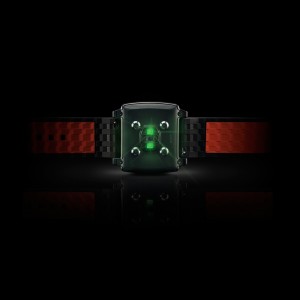 Basis Science, the wearable company that was acquired in March by Intel’s new devices group, has unveiled a new wearable, the Basis Peak fitness and sleep tracker. The Peak device will replace the B1 and Carbon Steel devices, which will be supported but no longer sold starting November 5, when the Basis Peak goes on sale.
Basis Science, the wearable company that was acquired in March by Intel’s new devices group, has unveiled a new wearable, the Basis Peak fitness and sleep tracker. The Peak device will replace the B1 and Carbon Steel devices, which will be supported but no longer sold starting November 5, when the Basis Peak goes on sale.
“Basis Peak … continues a lot of the same principles we had in the prior device in terms of multi-sensor approach toward informing our algorithms, the 24-7 monitoring but with some critical improvements,” Ethan Fassett, VP of product at Basis, told MobiHealthNews. “…We wanted to focus on this notion of being most advanced as well as being in a premium position in the market, which you’ll see in some of the materials used in the device: Forged aluminum body, really high-impact Gorilla Glass screen, as well as silicone straps, which are very soft and breathable.”
The Peak is a major overhaul of the Basis Band, and it's hard not to view it as an answer to the Apple Watch. The device sports a full touch screen, though it’s in black and white — a compromise, Fassett said, which allowed the company to boast a four-day battery life. That battery life allows the device to support 24-7 tracking, including Basis’s renowned sleep analysis — a pointed contrast to the Apple Watch’s expectedly limited battery life and lack of sleep tracking functionality.
The Peak will also have customizable straps (two at launch with additional ones to come) and will be water resistant up to five atmospheres of depth, allowing it to track swimming.
Perhaps most impressively, with the new Basis Peak, the company has solved a persistent problem with their much-advertised heart rate tracking feature. The Basis Band has always been able to measure optical heart rate at rest, but during exercise the optical sensor jostled too much to reliably deliver a reading. By using a raised berm around the optical sensor and tighter fitting straps, the Peak is able to block out the ambient light and movement distortion that normally obscure the readings.
All the Healthy Habits behavior change features and Basis IQ motion identification features will carry over to the new device, but the entire Basis user experience will be mobile first now, according to the company. Data and habit settings in the B1 were originally primarily accessed via a web app, but the company has been increasingly shifting more toward the mobile use case, and the Peak cements this move. The Android and iOS app have also been completely redesigned.
 Finally, at some point after the launch of the device, Basis will add some smartwatch-like features to the device, namely notifications. Text message, incoming call, or third party app notifications will be able to be forwarded to the wearable. They’ll stay on the device for five minutes, but users will have to look at their phone to see older notifications. This is to keep the user in the moment and to keep the wristworn device’s small screen from getting too cluttered.
Finally, at some point after the launch of the device, Basis will add some smartwatch-like features to the device, namely notifications. Text message, incoming call, or third party app notifications will be able to be forwarded to the wearable. They’ll stay on the device for five minutes, but users will have to look at their phone to see older notifications. This is to keep the user in the moment and to keep the wristworn device’s small screen from getting too cluttered.
The device will sell for $199 and will be available from Best Buy and Amazon as well as Basis' website. Later on, it will also be sold at REI.
Fassett doesn’t consider Basis to be competing with smartwatch players like Apple Watch or Samsung’s Gear line because, he says, the gulf between a fitness device with smartwatch features and a smartwatch with fitness features is a wide one.
“There is a consumer choice out there between a more general multipurpose device trying to cover aspects of health tracking or a device that’s very focused on health tracking and will provide a deeper, richer experience and stronger functionality,” he said, adding that Basis’ focus on fitness allows it to have more sensors, better tracking, and, of course, longer battery life. “We really do believe in the long-term continuous use case that requires days worth of battery life, and these guys are not going to get there, because they’re trying to serve too many masters. So it boils down to a matter of business focus, solving a problem, and doing it effectively.”
Fassett added that Intel acquired Basis to be its health tracking wearable — and kept the company completely intact and dedicated to that space. Other groups within Intel are looking at the broader smartphone market.
“If you look at the legitimate problems that can be solved that are out there, the question of health and fitness is the most salient and it’s the one that’s most directly addressable,” he said. “But it takes focus to be able to solve it.”














